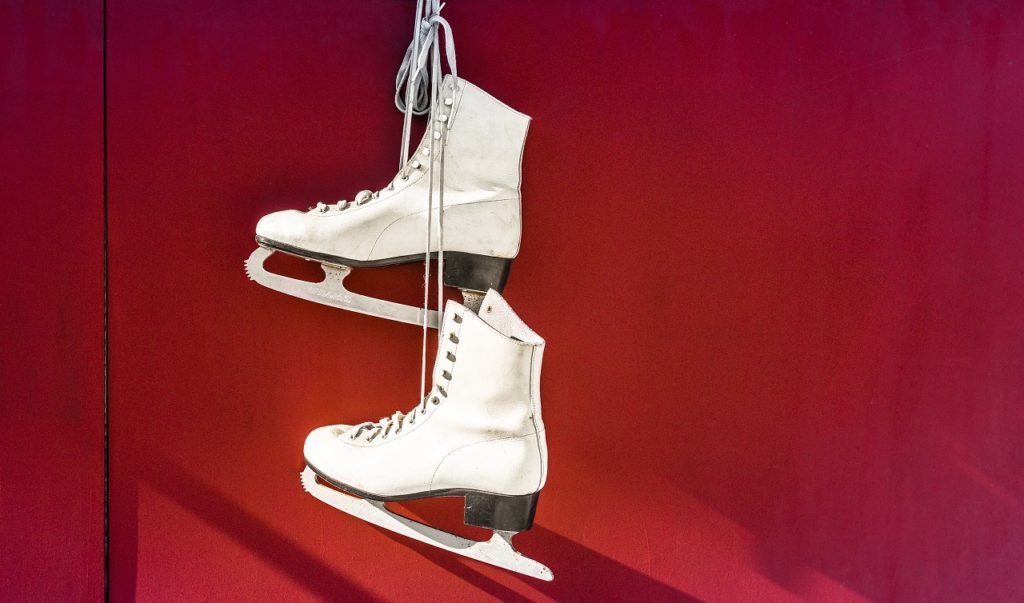Anabel Timmins

The ISR interview recently conducted with Rachael Denhollander regarding sexual abuse at USA gymnastics (USAG) for International Women’s Day 2022 was recorded before the Winter Olympics. However, the scenes of a 15-year-old girl caught up in a doping scandal less than 10 years after Russia was found to have engaged in a scheme to ‘steal the Sochi’ Olympics, has resonance; both with the abuse experienced at USAG, and with recent geo-political events, where Russia clearly refuses to play by the rules. This blog entry by Annabel Timmins of LimeCulture sheds light.
Less than 10 years after Russia attempted to ‘steal’ the Sochi Olympics through systematic doping fraud, 15-year-old Russian figure skater Kamila Valieva, who had failed a drugs test but had (inexplicitly) been allowed to compete, failed to win a medal. After being on the front page of every newspaper in the world, the pressure had clearly been too much, and she fell during her last performance.
The ice-cold scenes of her being berated by her coach, when she didn’t meet the exacting standards expected of her, was a tough watch. But what now? How has this changed what we do? It is the path of least resistance to watch it unfold, feel uncomfortable, comment and move on. We would be saddened but not surprised if a similar story unfolds in Paris in 2024, or down the road in a sports club in the next town on Saturday.
Can we justify our own inaction by considering Valieva’s conciliatory words to her coach: ‘You not only train, but also teach how to overcome yourself, which helps not only in sport but also in life’? I would argue not.
To stand by and accept such treatment of athletes is to reinforce the acceptability of psychological abuse. Collectively, we would be reinforcing the priority of performance over compassion, and the reach of this filters down from elite athletes through to grass roots participants. This is not an isolated incident taking place over 5,000 miles away or existing within the exclusive domain of authoritarian states. This is every day, in every sport.
The very definition of sport includes an element of competing. We are taught from a young age about winning and being the best. Social media oversharing children’s achievements, emphasising life’s medals is laying the groundwork for an unconscious tolerance for emotionally abusive training and coaching.
We watched the icy scene unfold thousands of miles away, in a setting unfamiliar to most of us, and allowed our everyday life to gradually wash away any sense of outrage. It is very simple to separate out what we have seen from what we do and who we are. We are professionals, parents, athletes, participants, volunteers. We are a collective army of resources and we could transform what can feel like watered down token values into something rock solid and impenetrable. We could put our collective outrage to good use by challenging what we see, modelling how we behave, expecting our shared values to be evidenced.
So what about the argument that Valiera’s coach gets results at the highest level? For every Eteri Tutberidze there is a coach who sees the child before the athlete. US gymnast Simone Biles was rightly applauded for stepping back from elite competition when she recognised it was not right for her to continue. We have a part to play in creating a culture where such fundamental acts of self-preservation are not seen as brave and requiring extreme self-confidence. Such acts should be accepted as a fundamental right of all athletes at any level.
We can support this to happen by not accepting abusive coaching methods, living out our values, dusting off and promoting policies that reinforce human rights. We need to teach children the acceptance of not always achieving and not lose the joy of taking part. Be outraged by what you saw and use that to make changes.
Annabel Timmins is Safeguarding in Sport Manager at LimeCulture, the UK’s leading sexual violence training and consultancy organisation.
Photo by Thomas Laukat from Pexels

One response to “Medals at all costs? Kamila Valieva discovered the ‘ice cold’ reality of failure”
20 years ago, maybe even 10 chances are we wouldn’t have been aware of the coach’s outburst you refer to.
But right now, and increasingly at all levels of sport, every action is filmed, analysed and then open to interpretation and comment, usually critical comment.
It’s not just participants that are under pressure from this new level of scrutiny but officials also as each decision they make is examined from all angles.
Sport is such an incredible outlet for so many people but you’re right to raise this particular flag.
The question is has the juggernaut of critical action and analysis gathered so much speed it cannot be stopped?